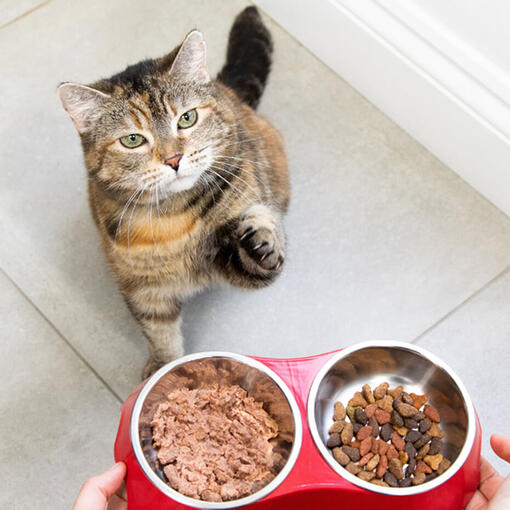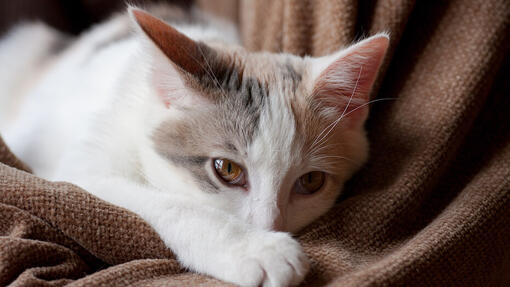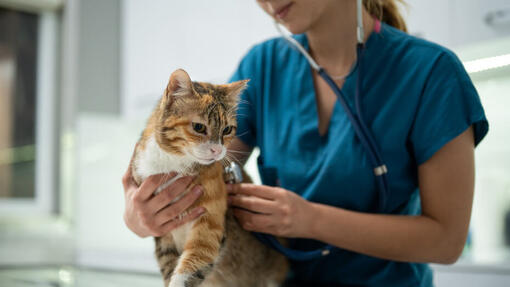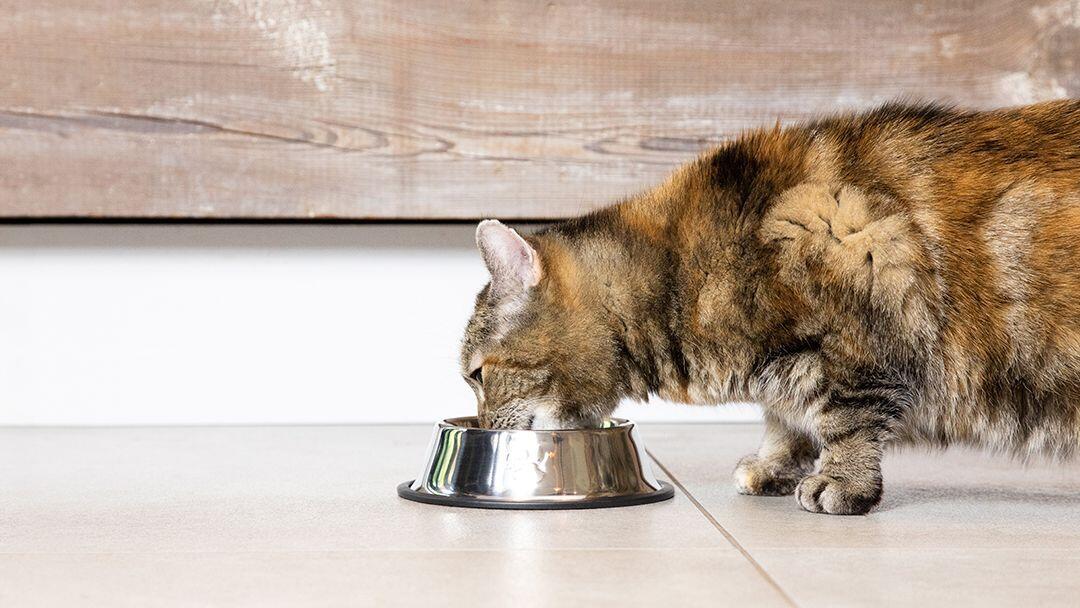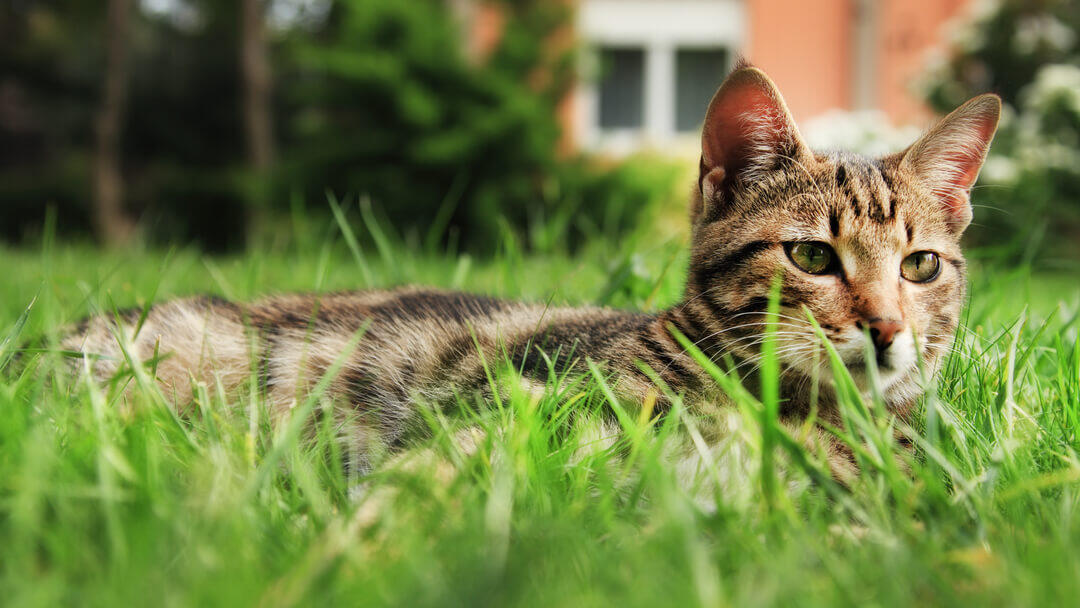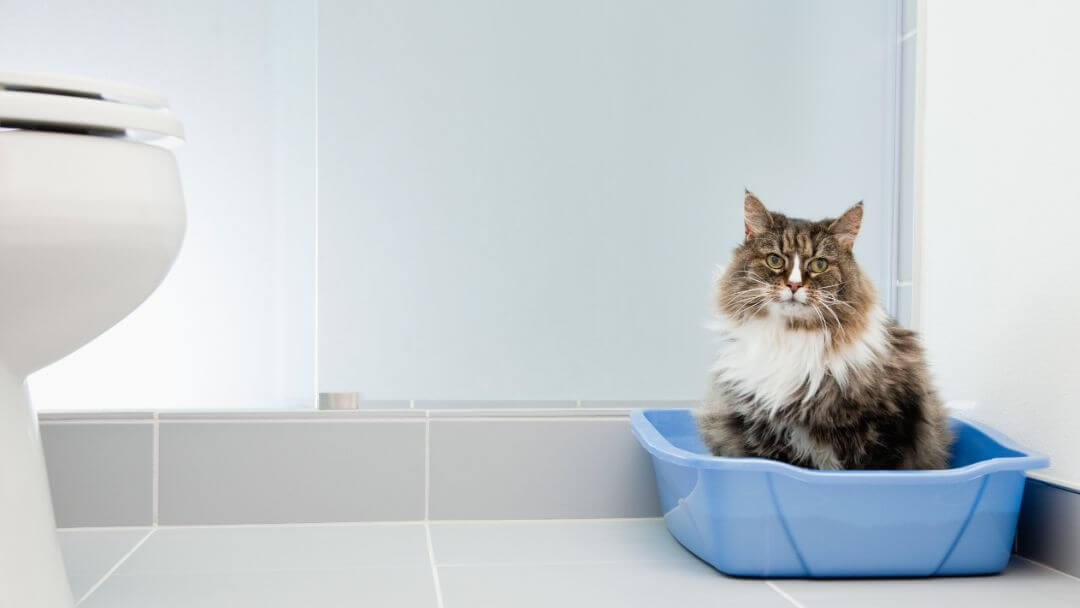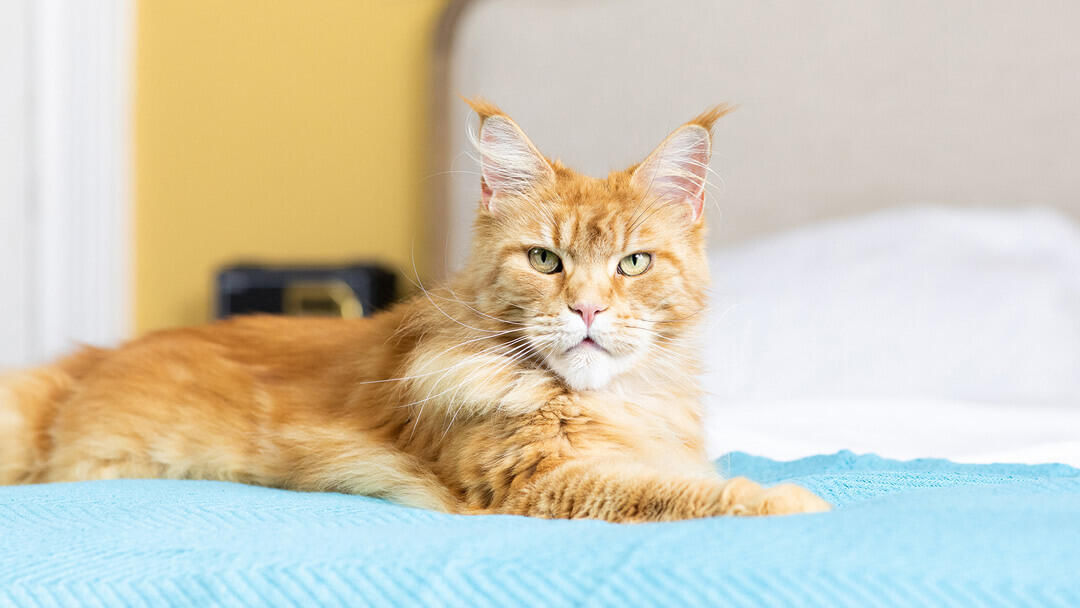
Colitis is a relatively common digestive disease in cats that can cause them discomfort and usually results in diarrhoea. Just as in dogs and people, it has many possible causes. However, with the right care and attention it is usually treatable, and with the help of your veterinary surgeon, your feline friend will be able to overcome it.
When your cat is experiencing colitis, you will want to do everything you can to help them recover. To make sure you’re prepared for this, we’ve put together this article with information about colitis in cats, as well as a few tips on how you can lend a hand. Read on to learn all there is to know about this disease in cats.
What causes colitis in cats?
Colitis can be brought on by various factors, from stress to parasites, and can affect any type of cat, regardless of their breed, age, or sex. Because the cause can vary from cat to cat, it’s important to book a visit with your vet to find out the exact trigger that caused your cat to have digestive issues. However, below we’ve listed the most common causes.
- Viral or bacterial infections
- Allergies or food intolerance
- Intestinal parasites
- Injury to the gastrointestinal tract
- Stress or anxiety
- Bowel cancer
- Antibiotics
Symptoms of colitis
To spot colitis in cats and provide them with assistance as early as possible, be on the lookout for the following symptoms:
- Frequent diarrhoea
- Blood in faeces (usually bright red)
- Mucus in faeces
- Straining to pass faeces
- Loss of appetite
- Weight loss
- Lethargy
- Dehydration
- Poor coat and skin condition
In the case of acute colitis, it’s possible that only diarrhoea will be present. On the other hand, chronic colitis may also cause weight loss, lethargy, poor appetite, and dehydration.
If your cat is experiencing any of these symptoms, it would be best to contact your vet as soon as possible and bring your cat in for a check-up.
How is colitis in cats diagnosed?
Colitis in cats is diagnosed through a combination of a detailed clinical history, a physical examination, and diagnostic tests. Your vet may recommend faecal analysis, blood tests, imaging like X-rays or ultrasound, blood test and sometimes a colonoscopy or biopsy to identify the cause of the inflammation. A thorough approach helps ensure the right treatment plan is put in place for your cat’s health and comfort.
Four ways to treat colitis in cats
Colitis can be either chronic (slowly developing but persistent) or acute (appearing as intense flare-ups). As such, treatment will vary depending on the underlying cause and whether your feline friend’s signs are acute or chronic. After performing a physical exam and running some tests, your veterinarian may also recommend the following treatments:
1. Rule out parasites
If your vet suspects that parasites are the main cause for colitis, they might suggest starting with anti-parasitic medication (dewormer) at the same time as testing your cat’s faeces, just before giving the first course of dewormer, to definitively assess if worms are responsible for your cat’s discomfort.
2. Treat infection
Some cases of colitis may be caused by bacterial infections, in which case your vet may prescribe a course of antibiotics. If your cat’s colitis is caused by a form of inflammatory bowel disease, they may also recommend anti-inflammatory medication. Normally colitis involves inflammation, which can be the primary cause or associated with other factors, so it is very common for vets to give cats some anti-inflammatory medication to help with discomfort and pain. They might provide this in the consult and sometimes they give out some extra doses to administrate at home.
3. Diet change
Many cases of colitis will clear up with a change in diet. Your vet may recommend what is known as a novel protein diet (protein from a source that your cat has probably not been in contact with before) - with venison or rabbit as the protein source for example. Diets that are high in fibre can also be useful. When it comes to diet change, it is best to ask your vet for advice.
4. Reduce stress
If your cat is stressed, it would be best to identify the cause and try to help minimise their anxiety. Keep them occupied with games and try to ensure that they always feel safe and have access to a quiet place of their own where they can be by themselves.
How can we prevent colitis in cats?
Taking care of your cat and making sure you’re doing the best you can in providing them with a good quality of life doesn’t come easy. It takes time and effort and a good deal of love and affection as well. To decrease the chance that your cat will get colitis, here are a few things you can do:
- Keep your cat up to date with their vaccinations.
- Provide a high quality, balanced diet.
- Encourage proper hydration by providing fresh and clean water every day.
- Minimise stress by ensuring that they have a safe and calm home environment.
- Avoid giving them human food.
- Avoid any sudden changes in your cat’s diet.
- Provide a regular worming routine and flea treatments.
How long do cats live with colitis?
Cats with colitis can live a normal life, especially if the condition is well managed. Colitis itself is rarely life-threatening and, in most cases, does not directly shorten a cat’s life. The long-term outlook depends on the cause of the colitis, but many affected cats go on to live well into their senior years with the right support.
Colitis in cats can be easily managed if spotted early and if your cat is given the right treatment. If you want to find out more about feline digestive issues, check out our article on diarrhoea in cats next.


